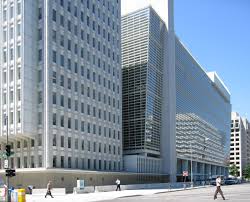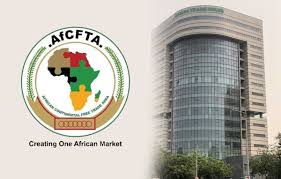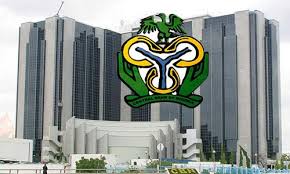April 7, 2021
KMO LEGAL NEWSLETTER – APRIL 2021

AN OVERVIEW OF THE NEW SEC CROWDFUNDING RULES
By Akorede Folarin (Associate)
INTRODUCTION
Pursuant to the powers conferred on it by Section 313 of the Investment and Securities Act 2007 (ISA), the Securities and Exchange Commission (SEC) released Rules for the Regulation of Crowdfunding in Nigeria on January 21, 2021. The Rules amongst other things seeks to provide a definite regulatory framework for equity crowdfunding activities in Nigeria and to make the crowdfunding market safe, conducive, and reliable for all stakeholders. This newsletter evaluates the imports of the new Rules and their potential impact on Micro-, Small and Medium-sized Enterprises (MSMEs)and their access to capital for growth and expansion going forward.
March 19, 2021
KMO LEGAL NEWSLETTER – MARCH 2021

BOFIA 2020 AND THE NEW REGIME FOR BANKS’ INSOLVENCY AND RESTRUCTURING IN NIGERIA
By Akorede Folarin (Associate)
INTRODUCTION
Nigeria passed the Banks and other Financial Institutions Act 2020 (BOFIA 2020) into law on 13 November 2020, repealing the erstwhile Banks and other Financial Institutions Act 1991 (BOFIA 1991). The new Act (BOFIA 2020) makes provisions for a more modern, more conducive and business-friendly legal framework for the insolvency and restructuring of banks and other financial institutions in Nigeria. This edition of the newsletter highlights some of the provisions.
January 19, 2021
KMO LEGAL NEWSLETTER – JANUARY 2021 (VOL.1)
EXTENT OF LIABILITY IN THE EXECUTION OF BANK REFERENCE FORMS
By Felix Ayem (Associate)
Introduction
One of the criteria for opening a current account in any Bank in Nigeria, is the requirement that at least two referees must recommend the prospective account holder to the Bank. The Referees are expected to execute Reference Forms recommending the persons believed to be well known to them.
Reference Forms of different banks contain some conditions conspicuously written on them. The purpose of executing Reference Forms by Referees however appears to be a mere act of introducing persons whom, in their estimation, are reputable and capable of operating or maintaining current accounts with the Bank without more. However, there is a recent practice on the part of some Banks in Nigeria to attempt to hold referees liable where a customer defaults in the payment of a loan facility obtained in the in the ordinary course of his banking relationship.
In this article, emphasis is on the extent of the liability of Referees in executing Reference Forms. Can a Referee be held liable for all subsequent action of the referenced customer particularly in the event of default in repayment of a loan facility as described above? In other words, does a mere reference of a customer as a fit and proper person to operate a current account with a Bank translate to a guarantee agreement between the Referee and the Bank?
December 21, 2020
KMO LEGAL NEWSLETTER – DECEMBER 2020 (VOL.2)
DISPUTE RESOLUTION UNDER THE AFRICAN CONTINENTAL FREE TRADE AREA (AfCFTA) AGREEMENT
By Ruth Nwankwo (Associate)
Nigeria has ratified the African Continental Free Trade Area (AfCFTA) Agreement which will come into effect on 1st January 2021 following the approval of the Federal Executive Council. This is after more than a year Nigeria became a signatory to the Agreement on 7th July 2019. The reason for the cold feet shown by Nigeria towards the ratification of the Agreement is to ensure the protection of Nigerian Industries.1 There was much deliberations and consultations with trade and industry stakeholders on the threats the operation of the Agreement may present such as the rise in smuggling, import surge arising from trade liberalisation without corresponding growth in export of Nigerian products and the fear of Nigeria turning into a “dumping ground” for non-African goods.2
The AfCFTA Agreement portend a good omen for Africa because of its objectives which include the creation of a single market for goods and services, facilitation of investments, enhancing competitiveness of the economies of State Parties etc.3 The Agreement seeks a progressive elimination of tariffs and non-tariff barriers to trade in goods, liberalisation of trade in services, cooperation on investment, intellectual property rights, competition policy, trade-related areas, custom matters, establishment of a dispute settlement mechanism amongst others.4
An assessment conducted by the Economic Commission for Africa5 reports that AfCFTA will be a game changer for stimulating intra-African trade which is projected to increase by between 15% and 25% depending on liberalization efforts in 2040 compared to a situation with no AfCFTA in place The more ambitious the liberalisation of trade, the greater the expansion. This expansion will be most pronounced in industrial sectors thereby providing great opportunities to industrialize through trade.6
December 15, 2020
KMO LEGAL NEWSLETTER – DECEMBER 2020 (VOL. 1)
AN OVERVIEW OF THE BANKS AND OTHER FINANCIAL INSTITUTIONS ACT 2020
By Akorede Folarin (Associate)
The amendment and replacement of the Banks and Other Financial Institutions Act (BOFIA) 2004, has long been touted to be the next major milestone in the country’s ambitious drive towards creating an enabling business environment in the country and improving the Nigerian investment climate.
The now repealed Act had been in operation for about 16 years without amendment, despite progressive innovations in the banking and finance sector globally and the increasing complexities as a result of disruptive technologies and their associated risks. Also, lax corporate governance under the old Act had given room for insider abuse and corruption, culminating in the humongous increase in non-performing loans (NPLs) in the country’s banking system. Additionally, the erosion of faith in the Nigerian banking system as a result of the 2004 and 2008 financial crises which can be traced to the excessive risk taking, reckless credit facilities, and other unethical practices in the system had resulted in the long and growing public clamour by stakeholders for the review of the regulatory framework for banking and finance in Nigeria.
The enactment of the Banks and Other Financial Institutions Act (BOFIA) 2020 is, therefore, intended to update the existing Act to tackle some of these debilitating challenges in the Nigerian banking and financial services industry occasioned by an Act which has proved to be grossly inadequate in the present ecosystem and to bring it in line with global best practices. The Act seeks to regulate banking and businesses of other financial institutions by prohibiting the carrying on of such businesses in Nigeria except under license and by a company incorporated in Nigeria; update laws governing Banks, Financial Institutions and Financial Services Companies; enhance efficiency in the process of obtaining/granting banking licenses; accurately delineate the regulatory functions of the Central Bank of Nigeria (“the Bank” / “CBN”) in the financial services industry; update and incorporate the laws for enacting, licensing and regulating microfinance banks; regulate the activities of financial technology companies (Fin-Techs); and update commensurate penalties for regulatory breaches in the financial services sector.
The key provisions of the new Act are highlighted as follows:
BANKING BUSINESS
Operating without License
- The Act makes it an offense for any person/body to transact banking business without a valid license issued by the CBN. The Act goes further to provide a stiff penalty of 5 years imprisonment or a fine not less than N50 million or two times the cumulative deposits or other amount collected or both imprisonment and fine for anyone who violates this provision. This we expect will serve as a deterrent to operators of Ponzi schemes who swindle naïve investors through fraudulent means. The Central Bank of Nigeria (CBN) itself has previously iterated that widespread innovation in channels for delivering financial services, emergence of new types of regulated institutions, advancements in supervisory techniques and methodologies are some of the contemporary developments that necessitate the need to upscale the legal framework for banking regulation and supervision in Nigeria.
October 5, 2020
KMO LEGAL NEWSLETTER – OCTOBER 2020 (VOL. 1)
EXPLORING THE SIGNIFICANCE OF THE PETROLEUM INDUSTRY BILL, 2020
BY Akorede Folarin (Associate)
Close to two decades after the Petroleum Industry Bill (the Bill) was first conceived and more than a decade since it was first introduced (with several back and forth in between over its content and structure), the Presidency has again transmitted the Petroleum Industry Bill (now PIB 2020 ) to the National Assembly for deliberation and passage.
Generally, the Bill signifies necessary reforms to the Nigerian petroleum regulatory framework that is still being governed by laws and regulations made more than 40 to 50 years ago. It is clear that despite being Africa’s largest oil producer and boasting its second-largest proven oil reserves and largest gas reserves, Nigeria inarguably lags behind several other continental producers in reforms and has started to lose crucial investors to big weights like Angola and neighbouring newcomer Ghana with more investor-friendly petroleum sectors, whilst facing stiffer competition from new entrants on the continent like Tanzania, Uganda, Mozambique etc.
The lack of a modern and up-to-date regulatory framework has been repeatedly identified as a cog in the wheel of a sector which accounts for the staggering majority of the nation’s revenues, having undoubtedly repelled vital investments (both local and foreign) into the sector at a time when many other countries are moving to exploit their oil and gas resources. Previous iterations of the Bill had suffered setbacks not due to poor understanding of the problems or due to deficiency in expert inputs, but largely due to disagreement among key stakeholders on the regulatory framework, ranging from the powers of the Minister of Petroleum, ownership and control of resources, appropriate fiscal regime, host community benefits, environmental concerns, etc.
According to a policy brief by the Nigeria Extractive Industries Transparency Initiative (NEITI) titled The Urgency of a New Petroleum Sector Law, such regulatory uncertainty in the petroleum industry has cost the country an estimated $200 billion including loss of projected investments of up to $120 billion ($15 billion yearly).
September 24, 2020
KMO LEGAL NEWSLETTER – SEPTEMBER 2020 (VOL. 1)
CRYPTOCURRENCY: REGULATION OF DIGITAL ASSETS IN NIGERIA
BY Ruth Nwankwo (Associate), Akorede Folarin (Associate)
and Ugochukwu Okekeatu (Trainee Associate)
INTRODUCTION
Cryptocurrency is no longer a new concept in the global economy. In fact, cryptocurrency adoption and activities are on the rise all over the world. Cryptocurrency has been defined simply as a digital or virtual currency that is secured by cryptograph. It has been considered to be a digital medium of exchange, based on the principles of cryptography allowing performance of secure, decentralized and distributed economic transactions. It is essentially electronic cash.
Bitcoin was the first cryptocurrency to be created and launched in 2009 and so far, more cryptocurrencies have been introduced such as Litecoin, Peercoin, Namecoin, Ethereum, Cardona, EOS, Tron etc. According to the Chainalysis 2020 Geography of Cryptocurrency Report, which is the first ever attempt at a comprehensive country-level breakdown of global cryptocurrency activity, cryptocurrency is now a global phenomenon. In fact, the following countries, with Nigeria at the 8th position, were ranked top ten (10) out of 154 countries on the 2020 Global Crypto Adoption Index; they are Ukraine, Russia, Venezuela, China, Kenya, United States of America, South Africa, Nigeria, Colombia and Vietnam. According to this report, the index is a testament to the buzz around cryptocurrency as an investment and especially in the developing world as a means of value storage and medium of exchange. The index also showed that developing countries have high grassroots cryptocurrency activity.
Prior to now, there was no existing regulation on digital assets like cryptocurrency although regulatory authorities have shown interest in the developments in this sector for a while. In 2019, the Securities and Exchange Commission (SEC) set up the Fintech Roadmap Committee of the Nigerian Capital Market to analyze the impact of fintech on investments and securities in Nigeria and to make recommendations on possible regulatory moves. One of the recommendations in the Final Report of the Committee is that the SEC should be responsible for the regulation of Virtual Financial Assets (VFAs) Exchanges in Nigeria and the regulatory framework. Consequently, SEC released a draft document to regulate digital assets but some industry players insisted that while it was a good move, it was too early to commence regulation of stakeholders in the sector, investors and dealers alike.
September 1, 2020
KMO LEGAL NEWSLETTER – AUGUST 2020 (VOL. 3)
A COMPREHENSIVE REVIEW OF THE COMPANIES AND ALLIED MATTERS ACT 2020
It came as great news indeed that President Muhammadu Buhari has finally signed the Companies and Allied Matters (Repeal and Re-enactment) Bill into law as the Companies and Allied Matters Act (CAMA) 2020 after what seemed like forever.1 The extant Companies and Allied Matters Act (CAMA) had been in operation for 30 years without any substantial improvement despite constant developments in the global corporate practice landscape, and had over time become outdated. This has inevitably presented obstacles to the seamless incorporation and operation of businesses in the country, especially when compared with what is obtainable globally.
The signing into law of the new CAMA is, therefore, undoubtedly one of the most impactful business/economic upheavals in the country in the past three decades.2 It will help to implement a catalytic modern regulatory framework for businesses while also improving the country’s ease of doing business and achieving global competitiveness in line with the Federal Government’s Economic Recovery and Growth Plan (ERGP 2017 – 2020) which targets Nigeria ranking in the top 70 in the World Bank’s Doing Business Index by 2023.3
Against this background, this article highlights the prime imports of the Act. ![]()
August 11, 2020
KMO LEGAL NEWSLETTER – AUGUST 2020 (vol. 2)
CAN THE FEDERAL INLAND REVENUE SERVICE AMEND THE CONSTITUTION BY A MERE PUBLIC NOTICE?
By Felix Ayem (Associate)
INTRODUCTION
The procedure for constitutional amendment or any other Act in Nigeria is cumbersome and can only be made by the National Assembly in compliance with the provisions of section 9 of the Constitution of the Federal Republic of Nigeria, 1999 (as amended). In this situation, no individual, ministries and agencies of government are empowered to embark on such duty as the role is constitutionally arrogated to the legislature in line with section 4 of the 1999 Constitution.
This article looks at the constitutionality of the information as contained in the Public Notice issued by the Federal Inland Revenue Service on the 20th day of July 2020 wherein, the agency claimed to be exclusively in charge of stamp duties collected by banks in respect of all banking transactions.
THE PUBLIC NOTICE
The Public Notice entitled “Clarification on the Administration of Stamp Duties in Nigeria” was issued by the Federal Inland Revenue Service (FIRS) on 20th July, 2020. Paragraph 5 of the Circular with the heading “Administration of Stamp Duties in Nigeria” is set out below for the purpose of emphasis.
“5. Administration of Stamp Duties in Nigeria.
- Section 4(1) of the Stamp Duties Act provides that the Federal Inland Revenue Service shall be the only Competent Authority to impose, charge and collect duties upon instruments where such instruments relate to matters executed between a company and any person.
- Section 4(2) of the Stamp Duties Act provides that the relevant authority of a state shall collect duties in respect of instruments executed between individuals.
iii. In respect of banking transactions, the FIRS is vested with the powers to collect stamp duties on all banking transactions.
- As such, the powers given to the State Government through their respective revenue authorities to administer stamp duties by ensuring the assessment, collection and accounting for stamp duties between individuals into the State Government revenue accounts does not include banking transactions.
v. The Stamp Duty Commissioner is appointed by the relevant tax authority (Federal or State) as prescribed by jurisdictional authority to administer the Act. The Function of the Commissioner is to administer the provisions of the Act and to supervise Stamp Duties office; adjudicating/assessment, stamping, the imposition of penalties where necessary, ensuring the security of stamped instruments, and account for duties collected”.
Download full Newsletter here FIRS and Stamp Duties 2 pdf.. as a pdf document.
August 6, 2020
KMO LEGAL NEWSLETTER – AUGUST 2020 (vol. 1)
AN EVALUATION OF THE POWER OF THE NATIONAL ASSEMBLY TO CONDUCT INVESTIGATIONS
By Akorede Folarin (Associate)
INTRODUCTION
It is not uncommon to see either chamber of the National Assembly inviting different heads/personnel of ministries, departments and agencies (MDAs) and companies to appear before one or more of their standing committees due to one or more issues for determination before them. As a matter of fact, we have severally witnessed face-offs between either chamber and those they invite, often timesowing to challenges by those people or bodies on the propriety or legality of such invitations or the conduct of proceedings. A significant example of this was the embarrassing face-off between the Senate and the Inspector-General of Police in 2018 due to the latter refusing to honour the former’s invitation for investigation into the insecurity, mass violence and extra-judicial killings being witnessed in the country.1
Another is the legendary ‘trial by fire’ of the ex-Director-General of the Securities and Exchange Commission (SEC), Ms. ArunmaOteh, in 2012. It even so happened that the Association of Licensed Telecommunications Operators of Nigeria (ALTON), the official industry body for telecommunications companies and operators in Nigeria, dragged the National Assembly before the Federal High Court in 2018, complaining that the constant invitation of their CEOs to appear before different committees of the National Assembly affected their daily business operations, and seeking a judicial clarification of the oversight functions carried out by lawmakers in the telecoms sector.2
In view of all the above, this article evaluates the investigative/oversight powers of the National Assembly as guaranteed by the Constitution viz-a-viz highlighting the extent or limit of that power.
CONSTITUTIONAL OVERSIGHT POWERS OF THE NATIONAL ASSEMBLY
The legislative oversight power bequeathed upon the National Assembly and the State Houses of Assembly (HoA) by the Constitution3 is an important part of the fabric of our democratic system of government. It is a power given to the legislature to assist it in performing its role of checks and balances in a democracy.
Download full Newsletter here powers of the National Assembly as a pdf document.









